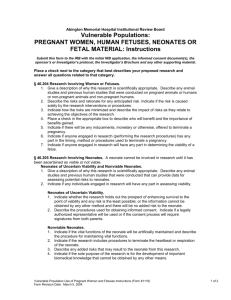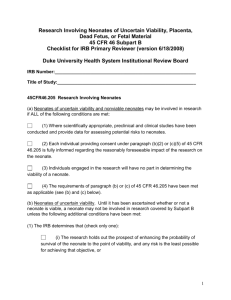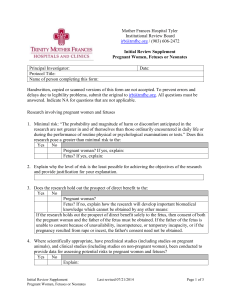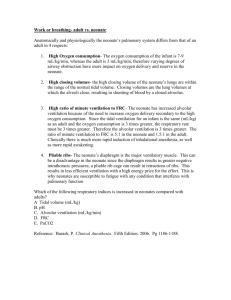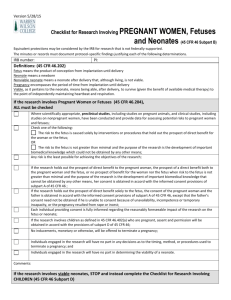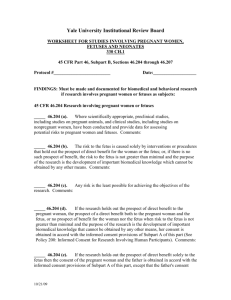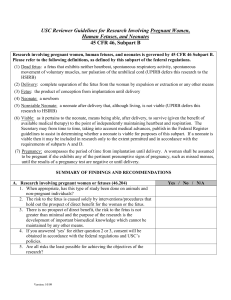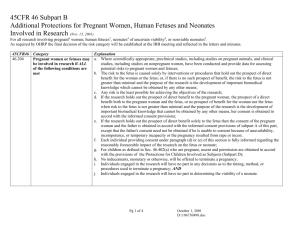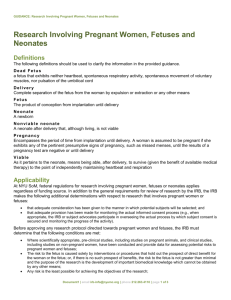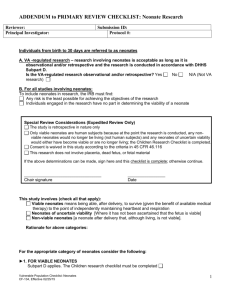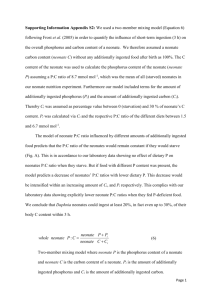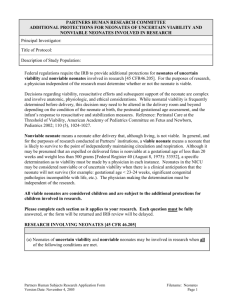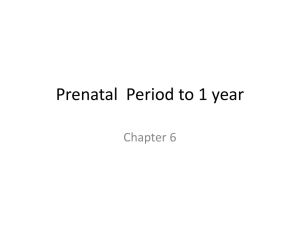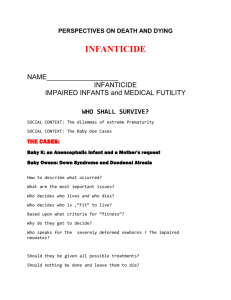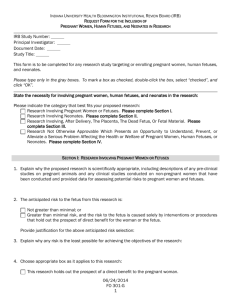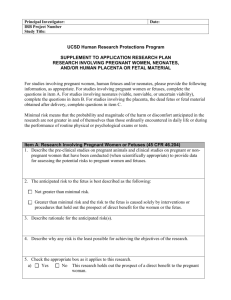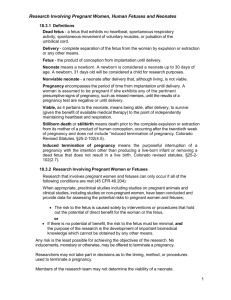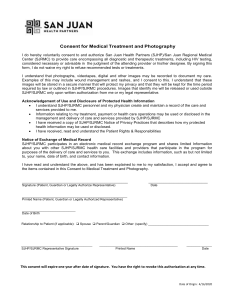205 Cklist - CHOP Institutional Review Board
advertisement
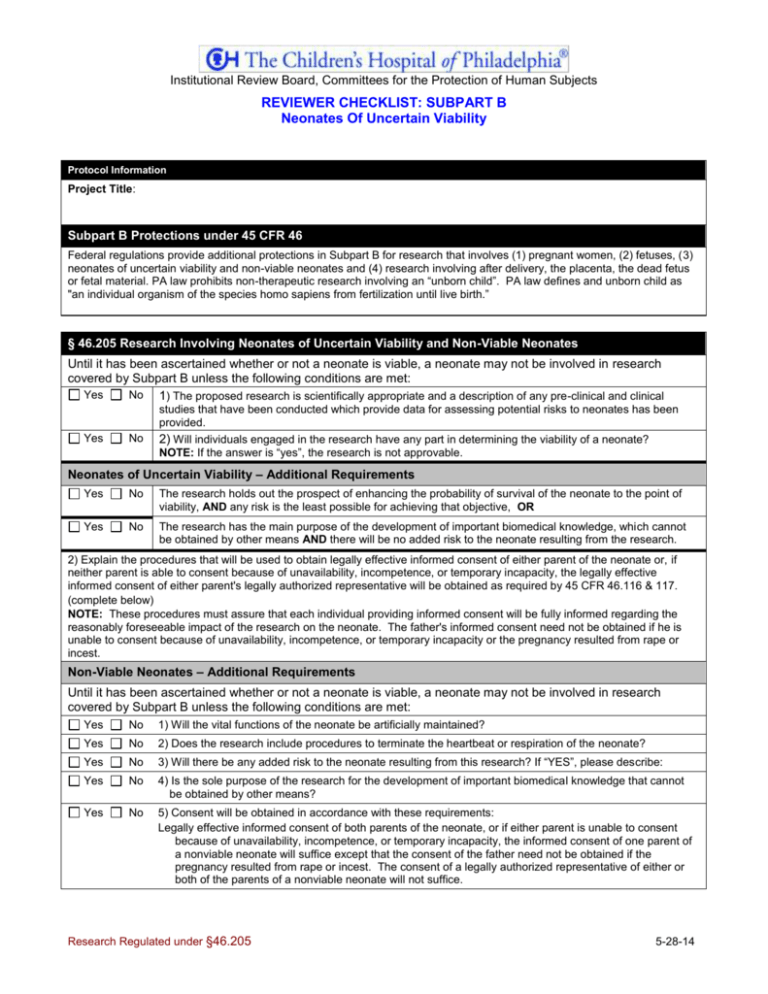
Institutional Review Board, Committees for the Protection of Human Subjects REVIEWER CHECKLIST: SUBPART B Neonates Of Uncertain Viability Protocol Information Project Title: Subpart B Protections under 45 CFR 46 Federal regulations provide additional protections in Subpart B for research that involves (1) pregnant women, (2) fetuses, (3) neonates of uncertain viability and non-viable neonates and (4) research involving after delivery, the placenta, the dead fetus or fetal material. PA law prohibits non-therapeutic research involving an “unborn child”. PA law defines and unborn child as "an individual organism of the species homo sapiens from fertilization until live birth.” § 46.205 Research Involving Neonates of Uncertain Viability and Non-Viable Neonates Until it has been ascertained whether or not a neonate is viable, a neonate may not be involved in research covered by Subpart B unless the following conditions are met: Yes No 1) The proposed research is scientifically appropriate and a description of any pre-clinical and clinical studies that have been conducted which provide data for assessing potential risks to neonates has been provided. Yes No 2) Will individuals engaged in the research have any part in determining the viability of a neonate? NOTE: If the answer is “yes”, the research is not approvable. Neonates of Uncertain Viability – Additional Requirements Yes No The research holds out the prospect of enhancing the probability of survival of the neonate to the point of viability, AND any risk is the least possible for achieving that objective, OR Yes No The research has the main purpose of the development of important biomedical knowledge, which cannot be obtained by other means AND there will be no added risk to the neonate resulting from the research. 2) Explain the procedures that will be used to obtain legally effective informed consent of either parent of the neonate or, if neither parent is able to consent because of unavailability, incompetence, or temporary incapacity, the legally effective informed consent of either parent's legally authorized representative will be obtained as required by 45 CFR 46.116 & 117. (complete below) NOTE: These procedures must assure that each individual providing informed consent will be fully informed regarding the reasonably foreseeable impact of the research on the neonate. The father's informed consent need not be obtained if he is unable to consent because of unavailability, incompetence, or temporary incapacity or the pregnancy resulted from rape or incest. Non-Viable Neonates – Additional Requirements Until it has been ascertained whether or not a neonate is viable, a neonate may not be involved in research covered by Subpart B unless the following conditions are met: Yes No 1) Will the vital functions of the neonate be artificially maintained? Yes No 2) Does the research include procedures to terminate the heartbeat or respiration of the neonate? Yes No 3) Will there be any added risk to the neonate resulting from this research? If “YES”, please describe: Yes No 4) Is the sole purpose of the research for the development of important biomedical knowledge that cannot be obtained by other means? Yes No 5) Consent will be obtained in accordance with these requirements: Legally effective informed consent of both parents of the neonate, or if either parent is unable to consent because of unavailability, incompetence, or temporary incapacity, the informed consent of one parent of a nonviable neonate will suffice except that the consent of the father need not be obtained if the pregnancy resulted from rape or incest. The consent of a legally authorized representative of either or both of the parents of a nonviable neonate will not suffice. Research Regulated under §46.205 5-28-14
